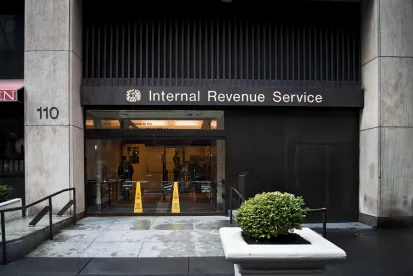In accordance with emergency powers granted in the wake of the COVID-19 pandemic, the Internal Revenue Service (IRS) and US Department of Labor (DOL) recently issued guidance temporarily extending a number of benefit plan-related deadlines and providing other relief for participants and plan sponsors having difficulty complying with these requirements during the COVID-19 pandemic. Below is a summary of the guidance, which is posted in the Employee Benefits Resources Section of the Jones Walker Disaster Prep & Recovery webpage.
DOL and IRS Final Rule
The May 4, 2020, Final Rule generally suspends certain benefit plan deadlines for the duration of the “Outbreak Period,” which is an open-ended period beginning March 1, 2020, and ending 60 days after the end of the COVID-19 national emergency. The relief under the Final Rule is generally aimed at participants and beneficiaries, and mostly affects group health plans.
Under the Final Rule, the Outbreak Period is disregarded for purposes of the following deadlines:
-
The deadline for plan sponsors to issue Consolidated Omnibus Budget Reconciliation Act (COBRA) qualifying event election notices (normally 44 days for employers that serve as both the plan sponsor and plan administrator)
-
The deadline for participants to elect COBRA coverage (normally 60 days after the employer issues a COBRA qualifying event notice)
-
The deadline for COBRA participants to pay COBRA premiums (normally within 45 days of first electing COBRA coverage and within 30 days of each monthly due date thereafter)
-
The deadline for an employee to notify a plan of a COBRA qualifying event, such as a divorce (normally 30 days)
-
The deadline for requesting special enrollment under the Health Insurance Portability and Accountability Act (HIPAA) portability rules (normally 30 days, but 60 days in the case of the loss of Medicaid or the Children's Health Insurance Program (CHIP) coverage)
-
The deadline for a participant to file a claim for benefits against a plan or to appeal an adverse benefit determination (note that this relief applies to all ERISA-covered plans, including disability and retirement plans)
-
The deadline for requesting (and perfecting) external review of a denied group health plan appeal (normally within 120 days after notification of determination on appeal)
The Final Rule leaves many questions unanswered, including how medical expenses will be covered on a retroactive basis by insurers and reinsurance carriers. As an example, if an employee has a child on March 1, 2020, the 30-day period for notifying the health plan does not run until after 60 days have passed after the end of the Outbreak Period. Assuming the Outbreak Period ends on September 30, the 30-day period would not begin to run until November 30, and the participant would have until December 29 to notify the plan of the addition of the new dependent. The employee’s new dependent would have coverage retroactive to March 1, assuming the participant paid all required premiums. A similar situation may occur with respect to participants who delay making COBRA elections, and adverse selection may be a concern (savvy individuals may wait until the end of the Outbreak Period to decide whether they need to elect or pay for COBRA coverage retroactive to the date of their qualifying event).
Employee Benefits Security Administration (EBSA) Disaster Relief Notice 2020-01
EBSA Notice 2020-01 (the “EBSA Notice”) temporarily delays certain deadlines and provides other relief primarily aimed at plans and plan sponsors. Relief provided under the EBSA Notice includes:
-
Extension of deadlines for providing all notices or disclosures (except those described under the Final Rule above) to plan participants, beneficiaries, and other persons under Title I of ERISA during the Outbreak Period, provided the employer has acted in good faith and provides the notice or disclosure as soon as administratively practicable. The EBSA Notice indicates that “good faith” includes providing the notices electronically, which is expanded to include text messages and continuous access websites.
-
Extension of deadlines for forwarding participant contributions and loan repayments to retirement plans, provided the failure is solely attributable to the COVID-19 pandemic.
-
Non-enforcement of failures to follow plan loan and distribution verification procedures (other than those statutory requirements under the jurisdiction of the IRS such as obtaining spousal consent) during the Outbreak Period, provided that:
-
The failure was due to the COVID-19 pandemic;
-
Good-faith diligent efforts are made to comply with the requirements; and
-
The procedural deficiencies are corrected as soon as administratively practicable.
-
-
Extension of Form 5500 and Form M-1 filing deadline to July 15, 2020, for filings originally due between April 1 and July 14. This mirrors the relief provided under IRS Notice 2020-23 (discussed below) and is only relevant to non-calendar year plans. Calendar year plans must still file by their normal due date of July 31, 2020, although this deadline could be extended via future relief.
IRS Notice 2020-23
IRS Notice 2020-23 (the “IRS Notice”) extends the deadline for a number of “time-sensitive actions” that are due between April 1, 2020, and July 14, 2020 (“Extension Period”), to July 15, 2020. Below is a non-exhaustive list of the more salient employee benefit-related time-sensitive actions in the IRS Notice (there are 44 in total):
-
The deadline for making certain cafeteria plan benefit elections (e.g., initial benefit election)
-
The Employee Stock Ownership Plan (ESOP) deadlines for diversification election periods, diversification distributions, dividend distributions, put options, employers repurchase payments, and commencement of ESOP distributions
-
The deadline for the distribution of excess deferrals, excess contributions, and excess aggregate contributions (plus earnings)
-
60-day rollovers of eligible rollover distributions to eligible retirement plans
-
90-day Eligible Automatic Contribution Arrangement (EACA) withdrawal election
-
Distribution of nondeductible contributions to a qualified retirement plan to avoid a 10% tax
-
Filing Form 5500, Form 5500-SF, Form 5500-EZ, and Form 8955-SSA
-
Two-year deadline for self-correction of significant operational failures under the Employee Plans Compliance Resolution System
A complete list of employee benefit-related time-sensitive actions is provided under Section 8 of IRS Rev. Proc. 2018-58.
Next Steps
While the relief provided is certainly welcome news, employers should make every effort to comply with any required action, notice, or disclosure when originally due. If compliance is not possible due to the COVID-19 pandemic, employers should comply as soon as practicable. In addition, employers should document their good-faith efforts to comply and, where applicable, compliance with any other relief-specific eligibility requirements. The same approach should be taken with respect to any delayed employee benefit-related, time-sensitive actions.
Employers should coordinate with their insurers, reinsurance providers, third-party administrators, health FSA administrators, COBRA administrators, retirement plan recordkeepers, and other service providers to determine how they will administer the areas impacted by deadlines. Employers should also consider how and when to communicate the extensions to participants. Although the guidance does not specifically state that communication to employees is required, plan administrators have a fiduciary duty to act prudently and in the best interest of plan participants, which may include communication of both substantive and procedural benefit plan changes. Accordingly, employers should make every effort consistent with the guidance described above to notify participants and beneficiaries regarding any significant changes in plan benefits or procedures.
Remember that legal principles may change and vary widely in their application to specific factual circumstances. You should consult with counsel about your individual plan. The same notice may vary depending on the terms of your plan and specific factual circumstances.





 />i
/>i

